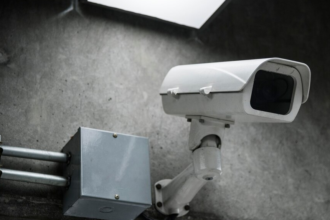A historic occasion in a case that has split the public for decades, the Menendez brothers’ resentencing hearing marks Having been found guilty of the horrific 1989 murders of their parents, Kitty and Jose Menendez, Erik and Lyle Menendez have spent over three decades behind bars. After years of court fights, the brothers are now looking for a shot at resentencing, which would qualify them for parole. Set to take place in Los Angeles, the hearing will decide if their sentence should be lowered, therefore providing perhaps a route to release. The Menendez brothers’ resentencing hearing will be discussed in this post, together with arguments from both sides and possible results of this hearing.
The Menendez Brothers Resentencing Hearing:
An important judicial hearing covering whether Erik and Lyle Menendez should be resentenced to a lighter sentence is the Menendez brothers’ resentencing hearing. Given that their conviction for the 1989 murder of their parents is already final, this hearing will not review their guilt or innocence. Rather, the court will concentrate on the brothers’ behavior while incarcerated, their efforts at rehabilitation, and whether they remain a threat to society.
Killing their parents in their Beverly Hills estate resulted in a life in prison sentence for the Menendez brothers, devoid of parole prospects. Erik was twenty-one and Lyle was eighteen at the time of the killings. Alleging years of sexual, physical, and emotional abuse at the hands of their father, Jose Menendez, a well-known musician, the brothers said they acted in self-defense. Their defense throughout the trial revolved mostly around this point.
The brothers acknowledged the killings, but their legal team contended that years of suffering and abuse led to the crime. On the other hand, prosecutors presented the boys as entitled, spoiled people who killed their parents to inherit their $14 million wealth. Combining this conflict of narratives with the well-reported trial, the Menendez case became among the most-watched criminal cases in American history. Now seeking to answer the question of whether the Menendez brothers should be granted a second opportunity is their resentencing hearing.
Events During the Resentencing Hearing
The defense and prosecution will each make their cases during the Menendez brothers’ resentencing hearing. The brothers’ rehabilitation during their incarceration, including their involvement in vocational training, therapy, and educational programs, s—will be the main emphasis of the defense. They will contend that Erik and Lyle Menendez have at least demonstrated regret for their deeds and have made notable progress toward reintegration into society. To testify regarding the brothers’ development and parole preparedness, the defense team will also call psychologists and penitentiary officials, among other experts.
The prosecution will counter that the brothers have not shown enough regret or adequately appreciated the seriousness of their crime. The prosecution will probably stress the savagery of the murders, noting that the brothers carefully planned and carried out their shootings using shotguns while their parents watched TV. They would contend that the brothers have not taken full responsibility for their crimes and that their allegations of mistreatment are overdone. The prosecution will contend that the brothers remain a threat to society and hence want to prevent their resentencing.
The judge supervising the Menendez brothers’ resentencing will give great thought to all the evidence put out during the proceedings. Expert opinion on the brothers’ psychological health, the effects of their incarceration, and their behavior behind bars could all be part of this. Before rendering a decision, the judge will also consider the legal reasons put up by both parties.
The most likely result of the resentencing hearing is what?
The Menendez brothers’ resentencing hearing’s result is hard to forecast. Should the judge decide to cut the boys’ sentence, they might qualify for parole. Still, eligibility for parole does not ensure that the brothers will be let out of custody. They would still have to answer a parole board following the hearing, which would assess their rehabilitation and ascertain whether they pose no more threat to society.
Should the court choose to cut their sentence, the brothers would be before the parole board, where their destiny would be decided. The board would assess their development in prison, including psychological rehabilitation, behavior, and educational successes. Should the board find Erik and Lyle Menendez to have been sufficiently rehabilitated and unlikely to reoffend, they could award parole. The brothers would remain imprisoned if the board decides, though, that the brothers remain dangerous or lack sufficient regret and deny parole.
The parole board would ultimately decide on the Menendez brothers’ release even if their resentencing hearing results in a lowered term. The hearing, then, marks only one phase in the protracted process of deciding whether Erik and Lyle Menendez will be allowed to re-enter society.
What Elements Will the Judge Review?
The judge’s ruling during the Menendez brothers’ resentencing hearing will be influenced by several things. Among the most crucial is the way the brothers behaved while incarcerated. Erik and Lyle Menendez have participated in several initiatives targeted at rehabilitation over the years. Among these offerings are treatment, vocational training, and instructional courses. The brothers have made notable development, which will show their dedication to personal development and rehabilitation, the defense will contend.
The judge will also take into account the brothers’ regret and readiness to own their misdeeds. The brothers can be at in advantage if the judge thinks they have accepted the damage they caused and have corrected their prior actions. The brothers might suffer, though, if the judge thinks they still reject accountability for the deaths or stick to their self-defense story.
Furthermore, taken into account by the judge will probably be the nature of the offense itself. The prosecution’s case will revolve mostly around the premeditated character of the murders and their savagery. The judge will have to balance this element of the case against the brothers’ efforts at rehabilitation to decide if they ought to be granted parole.
How ready is the Menendez Brothers' Legal Team?
Months of preparation have gone into the defense team covering Erik and Lyle Menendez for the Menendez brothers resentencing hearing. Their approach mostly concentrates on the boys’ rehabilitation inside their jail. To bolster its case that the brothers have demonstrated real regret and ought to be granted a second opportunity, the defense has compiled evidence from psychologists and prison officials.
The brothers’ involvement in several rehabilitation programs—including anger management, instructional classes, and therapy—is one important piece of evidence the defense intends to show. Emphasizing the brothers’ spotless disciplinary records while incarcerated, they will also contend that this indicates they are no more a threat to society.
The defense team will also draw attention to the fresh proof of child abuse not thoroughly taken into account during the initial trial. The brothers have argued that following years of physical, emotional, and sexual abuse by their father, they acted in self-defense. Since this story has attracted more attention recently, the defense will contend that trauma drove the brothers’ behavior.
What then lies ahead for the Menendez Brothers?
In a case that has generated discussion for decades, the resentencing hearing of the Menendez brothers is a pivotal point. The information put forward and the way the judge balances the claims from both sides will determine whether or not the brothers are resentenced and granted an opportunity at parole. Should their sentence be lowered, the brothers might be qualified for parole; yet, it is not assured that they will be released. The parole board will ultimately decide whether or not to grant parole; it will assess their rehabilitation and fit for reintegration into society.
It is evident, as the menendez brothers’ resentencing hearing progresses that this case is far from finished. The hearing will decide whether the brothers—who have spent more than thirty years behind bars—have opportunity to reclaim their freedom. Whatever the result, the hearing will probably affect how the case is remembered and how public view of justice, rehabilitation, and the prospect of pardon shapes.








